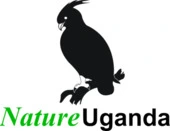Nature Uganda joins team of NGOs in West Nile in a drive to restore the depleted natural resources in the region

For a long time, Nature Uganda has been yearning to work in Westnile and bridge the gap in its conservation efforts in the region as compared to the rest of the country. With this ambition, Nature Uganda joined a consortium of NGOs on a project focusing on this region as well as the Albertine rift.
Nature Uganda is part of a consortium implementing a four-year project about “Restoring and conserving the degraded fragile ecosystems for improved community livelihoods among the refugee and Host communities of West Nile Region and the Mid-Albertine Rift”. The consortium is composed of Uganda Biodiversity Fund (UBF) as a coordinating agency and Wildlife Conservation Society (WCS), Nature Uganda (NU), and Ecological Christian Organization (ECO) as Technical implementers. The project is being implemented in the districts of Kikuube, Kyegegwa, and Kamwenge in Mid Albertine region and Terego and Yumbe in West Nile region.
The overall objective of the project is to improve livelihoods and ecosystems resilience to impacts of refugees and climate change in refugee hosting landscapes, which will contribute to improving resilience of both livelihoods and ecosystems by the end of the project. The initiatives will support restoration, strengthen protection, while mobilising local action to support and maintain the restoration efforts. The project will enable development of procedure for selection of new refugee settlements, develop and support implementation of mitigation measures and monitoring of wetlands. This is expected to enhance flow of ecosystem services and goods and build shared responsibility toward sustainable management of the natural resources.
The beneficiaries comprise landowners and residents, vulnerable and special groups including women, the elderly, youth, and physically challenged groups, in a set area within 15km buffer from the boundary of the refugee settlements. In addition, support will be provided to the private sector engaged in agricultural value chains, for sustainable land management practices such as climate smart agriculture, Agroforestry, soil and water conservation measures, among others.
The three outcomes of the project are; To restore degraded forests, wetlands, savannah woodlands and other fragile ecosystems impacted by human activities in refugee hosting districts; To support farmers and landowners in host communities to establish agroforestry enterprises and adapt Sustainable Land Management (SLM) practices; and To build the capacity of Local Governments (LG), Civil Society Organisations (CSOs), private sector companies and local communities for effective uptake of climate change mitigation and environmental conservation measures.
Under outcome one on restoration, Nature Uganda is supporting the restoration of wetlands, Rivers and woodlands in the project sites. The restoration process started with assessments to determine the baseline indicators for restoration and among this is the Ecosystem services-site based assessment, which is being done using the special Toolkit called TESSA (Toolkit for Eco-System Site-based Assessment). Project activities started with awareness meetings in project sites which involved the scoping of the resources used by the communities in the Mid Albertine Rift region.
It is hoped that at the end of the project, we will have achieved environmental restoration and management of 7,679 ha of land comprising Forest (353 ha); Woodlands (1,744 ha); woodlots (182 ha); Wetlands (400ha) and 5000 ha of land under agroforestry. Of this, 80% will be in the West Nile districts of Yumbe and Terego, while 20% undertaking will be in the Albertine Graben areas”. The project will collaborate with Office of Prime Minister, Ministry of Water and environment, Uganda Wildlife Authority, District local government and non-governmental institutions responsible for environment protection and biodiversity conservation and improve environmental planning.
Related Posts
Recent Posts
Forests and wetlands degradation and it’s impacts on herpetofauna and other wildlife
Embracing Regenerative Tourism as the next step in Sustainable Tourism
Engaging Site-based Communities in Research and Conservation: The Locally-based Monitoring Initiative
All Categories
- Conservation and Development (27)
- Eco-tourism (3)
- Education and Awareness (10)
- Forests (7)
- Habitats (9)
- Nature walk (2)
- People (5)
- Projects (9)
- Public dialogue (6)
- Research and Monitoring (18)
- Sites (4)
- Species (10)
- Wetlands (12)
- Wildlife (6)




